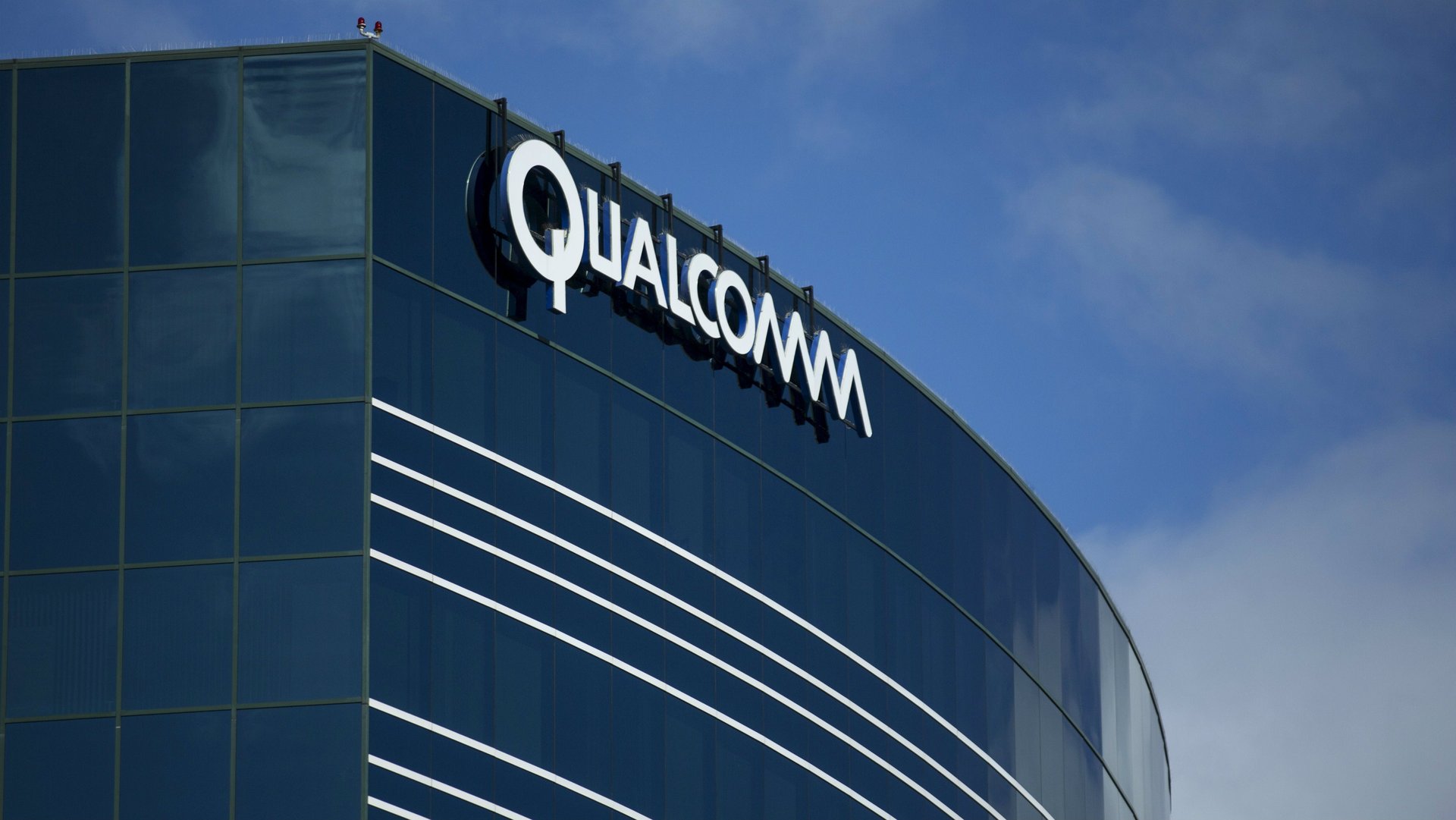Qualcomm is getting hit from both sides in the US-China spat
The US and China’s tit-for-tat jabs in trade and tariffs are moving in tandem with each country’s anxieties over dominance in the global tech industry. And as those tensions escalate this week, one company is set to suffer—San Diego-based chipmaker Qualcomm.


The US and China’s tit-for-tat jabs in trade and tariffs are moving in tandem with each country’s anxieties over dominance in the global tech industry. And as those tensions escalate this week, one company is set to suffer—San Diego-based chipmaker Qualcomm.
On April 19 a spokesperson for China’s Ministry of Commerce said that it had found “issues that are hard to resolve” as it conducted a preliminary review over Qualcomm’s planned acquisition of Dutch chip maker NXP.
That signals a further delay for a deal that Qualcomm has allotted over $40 billion for and waited over a year to close. After first announcing its plan to purchase NXP in November 2016, the company earned approval from antitrust regulators in the US in early 2017, and then in Europe and South Korea in January 2018 (paywall). China, however has stalled. In March, Bloomberg reported that domestic Chinese chip companies are lobbying the government to not approve the deal, arguing that it will give Qualcomm more power to charge patents for new technologies.
The planned purchase of NXP would help expand Qualcomm’s business away from smartphones and into new segments like autonomous vehicles, a vital shift because revenues and profits have slowed as the demand for smartphones plateaus globally.
The comments from China’s Ministry of Commerce come days after the US Department of Commerce barred US companies from supplying hardware and software components to ZTE, a Shenzhen-based maker of smartphones and networking equipment. The order was issued based on the department’s conclusion that ZTE had failed to adequately uphold the terms of a deal it made in March 2017, when it pled guilty to violating US sanctions against Iran and North Korea.
Those measures will likely handicap ZTE in the immediate future, relegating it to being a manufacturer of devices that don’t support LTE or even Android. But they’ll also impact Qualcomm, which supplies chips for all of ZTE’s phones in the US and over 50 percent of the phones it sells overseas. Neil Shah, research director at Counterpoint Research, told Reuters he estimates that Qualcomm will lose about $500 million dollars in revenue over the next year.
Qualcomm did not reply to Quartz’s request for comment for this piece.
Ironically, one of the measures the US government took against China was made in defense of Qualcomm. In March, the Committee on Foreign Investment in the Unites States (CFIUS), a branch of the Treasury Department that vets cross-border deals, helped kill a roughly $130 billion hostile acquisition of Qualcomm from Singapore-based Broadcom. In a public letter, the agency stated that the deal would weaken Qualcomm’s positioning in 5G at the expense of Chinese rivals, thereby endangering national security.
Yet the ZTE measures look set to do exactly that—deprive Qualcomm of sales, while further spurring Chinese investment in domestic semiconductors.